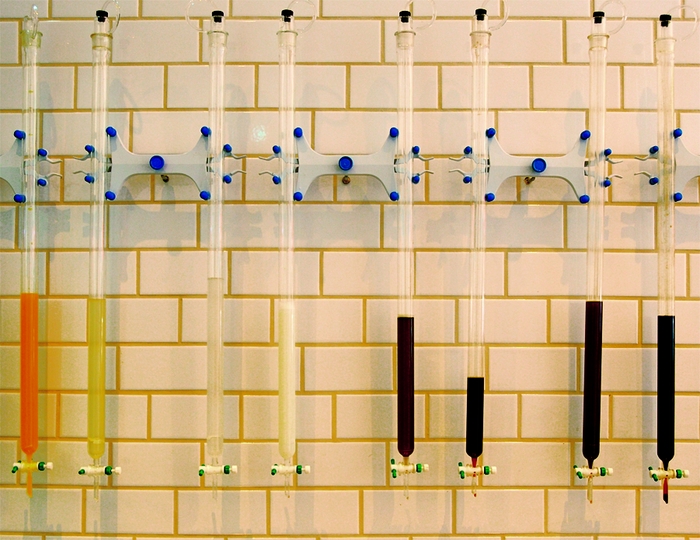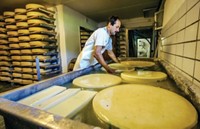Advertisement
Grab your lab coat. Let's get started
Welcome!
Welcome!
Create an account below to get 6 C&EN articles per month, receive newsletters and more - all free.
It seems this is your first time logging in online. Please enter the following information to continue.
As an ACS member you automatically get access to this site. All we need is few more details to create your reading experience.
Not you? Sign in with a different account.
Not you? Sign in with a different account.
ERROR 1
ERROR 1
ERROR 2
ERROR 2
ERROR 2
ERROR 2
ERROR 2
Password and Confirm password must match.
If you have an ACS member number, please enter it here so we can link this account to your membership. (optional)
ERROR 2
ACS values your privacy. By submitting your information, you are gaining access to C&EN and subscribing to our weekly newsletter. We use the information you provide to make your reading experience better, and we will never sell your data to third party members.
Environment
Newscripts
Keeping Time With Water, Filtered H2O For Sale
by Sophia L. Cai
August 27, 2012
| A version of this story appeared in
Volume 90, Issue 35

\
Drink it up: Molecule serves filtered water and “cocktails” infused with supplements dispensed from burets.
Thanks to catchy advertising jingles, most TV viewers know that a Subway foot-long sandwich is only $5.00, and like a good neighbor, State Farm is there for you. The Newscripts gang just heard the following science-y jingle that, although not famous, is extremely catchy:
Simple H2O makes it go, ticktock
Bedol Water Clocks
Good-bye batteries, hello H2O
Good-bye carbon footprint, hello H2O
Even better than the lighthearted tune (listen to it in a video at http://bit.ly/NewjDz) is what it advertises: a digital clock that runs solely on water. No additional source of power needed—plug, potato, or otherwise.
Inside the droplet-shaped clock is an electrolytic cell. The plastic divider separates two different metal electrodes, which are connected to the clock display circuitry. Pouring ion-laden water into the clock jump-starts a flow of electrons from one electrode (the anode) to the other electrode (the cathode), powering the clock.
The clock-maker, Bedol What’s Next, says the water needs to be replaced every six to 12 weeks, or whenever the display begins to fade. But don’t worry about having to reset the time every couple of months: An internal memory chip will keep the time while you run the faucet and refill.
While some people are reducing their carbon footprint by powering clocks with water, others are increasing it by shunning tap water to quench their thirst.
According to the sustainable development research organization Worldwatch Institute, nearly 165 million L of bottled water was consumed worldwide in 2005. In the U.S., water bottles contributed to the more than 4 billion lb of polyethylene terephthalate that ended up in landfills in 2007.
Many consumers avoid H2O direct from the public water supply because of potential contaminants and a less-than-crisp taste.
Enter Molecule, a store whose mission is to provide a “cleaner and more environmentally friendly alternative to tap and bottled water.” Last month, co-owners Adam Ruhf and Alexander Venet opened the water café in New York City’s East Village to sell meticulously filtered water.
Although Ruhf won’t go into details of the café’s patent-pending filtration process, he tells Newscripts it involves eight stages of technology—including reverse osmosis and ultraviolet treatment—that are intended to remove everything from heavy metals to bacteria and organic compounds to treatment by-products. According to a July 18 Wall Street Journalarticle featuring Molecule, the filtration system cost the café $25,000.
The avant-garde café has received much positive and negative attention, Ruhf says, but he thinks it “speaks to the value of this kind of business in an era of climate change and polluted water sources, and to the anxiety about clean water here and abroad.”
A lot of the flack, Ruhf says, has come from the café’s $2.50 price tag for a glass of filtered water. But customers praise Molecule for promoting refillable containers and community accessibility: Fill up a canteen for $1.00 or get up to 5 gal for $10. The café will also deliver water to your home via bicycle.
“Our philosophy is clean water, clean containers, clean delivery,” Ruhf says.
Molecule’s menu also includes “cocktails” made with filtered water that is infused with vitamins, herbs, and other supplements. “Strong Bones,” for instance, contains calcium, magnesium, and vitamin D. And “Immune” features 5-hydroxytryptophan, a precursor of the neurotransmitter serotonin; a concoction of traditional Eastern medicinal supplements; and extracts from four types of mushrooms.
Newscripts readers can judge for themselves the sustainability of filtering water and then adding vitamins and minerals back in. Good-bye carbon footprint, hello H2O!
Sophia L. Cai wrote this week’s column. Please send comments and suggestions to newscripts@acs.org.




Join the conversation
Contact the reporter
Submit a Letter to the Editor for publication
Engage with us on Twitter